October 2024
GRAIN SA IS AN ORGANISATION ESTABLISHED BY FARMERS FOR FARMERS, SERVING AS A VOICE AND SUPPORT FOR THE GRAIN AND OILSEED INDUSTRY. ITS GOAL IS TO HELP FARMERS ACHIEVE PROFITABILITY AND SUSTAINABILITY THROUGH ITS VARIOUS DEPARTMENTS, INCLUDING ECONOMICS, PHAHAMA GRAIN PHAKHAMA (FARMER DEVELOPMENT), COMMUNICATION AND RESEARCH.
The common thread across these departments is the focus on mining data and communicating it as usable information to the farmers. Research initiatives within Grain SA are coordinated through the following research portfolios known as consortia: Crop Improvement (CIC), Plant Health (PHC) and Climate Resilience (CRC). The consortium-based approach ensures that solutions to the pressing and complex problems that farmers face, are addressed and outcomes shared.
CIC was established to address South Africa’s wheat production shortfall, as the country currently produces only 50% of its wheat needs.
PHC aims to enhance food security and competitiveness for South African grain and oilseed farmers by providing accurate pest and disease diagnostics. Additionally, the consortium develops effective management strategies to ensure that farmers can handle pest and disease threats and remain globally competitive.
CRC: Climate change and seasonal climate variation are quickly becoming real threats to the South African grain and oilseed industry. CRC supports agricultural resilience by conducting trials on maize, sorghum and soybean varieties to identify the best practices for sustainable and profitable production and to advise on the best cultivars for specific environments. Their annual evaluations provide essential data that helps farmers to make informed decisions and navigate climate variability with greater confidence.
CONCLUSION
Grain SA’s research portfolios play a pivotal role in advancing the agricultural sector by providing farmers with the necessary knowledge and tools to enhance productivity and sustainability. By staying informed and involved with these initiatives, farmers can directly benefit from cutting-edge research and implement strategies that address current challenges such as climate resilience, crop improvement and plant health.
Meet Grain SA’s research team:

THIS magazine started in the early 2000s and was a black-and-white leaflet, available only in Setswana for developing farmers in North West. Since that time, it grew to a full-colour newsletter printed in seven languages (English, Afrikaans, Sesotho, Setswana, Sepedi, isiXhosa and isiZulu). Subsequently, due to cost constraints, Afrikaans and Sepedi were excluded, and more recently there were only three languages – English and two African editions (isiZulu with isiXhosa in alternate months, with Sesotho and Setswana in alternate months).
One of the driving factors of the high costs are the translations and layouts of the different languages. The translations also add a considerable length of time to the process of producing and disseminating the newsletter.
ENGLISH ONLY
Jane McPherson, PGP advisor, says that many things have changed in South Africa over the past 25 years. ‘English has been widely used as the main language of communication.
‘We have consulted with the farmers in the programme and the response has been positive in terms of accepting that Pula will from now on be available in English only. At the recent PGP board meeting, the matter was discussed, and the board is also comfortable to reduce the languages to only English.’
A LETTER FROM A TRANSLATOR
The Xhosa translator, sent this letter after being informed that the translators’ services will no longer be needed:
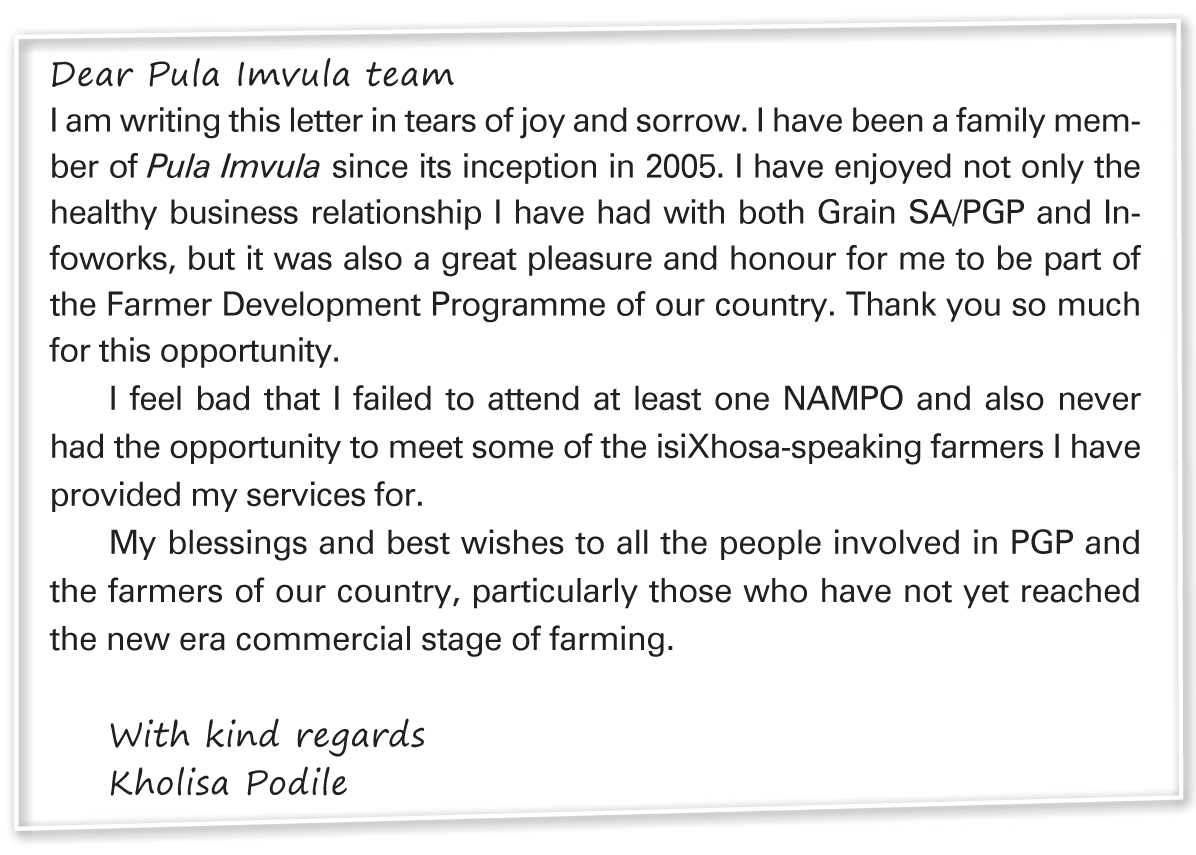
The Farmer Development Team has been busy visiting a total of 79 farms between 9 July and 7 August. In this time most of the farmers were working on their business plans and applications for loan funding for the coming season. They were also doing implement maintenance and soil corrections, getting ready for the new season.
Here are some of the activities captured by the mentors and regional development managers that paint a picture of the highs and lows of farming.
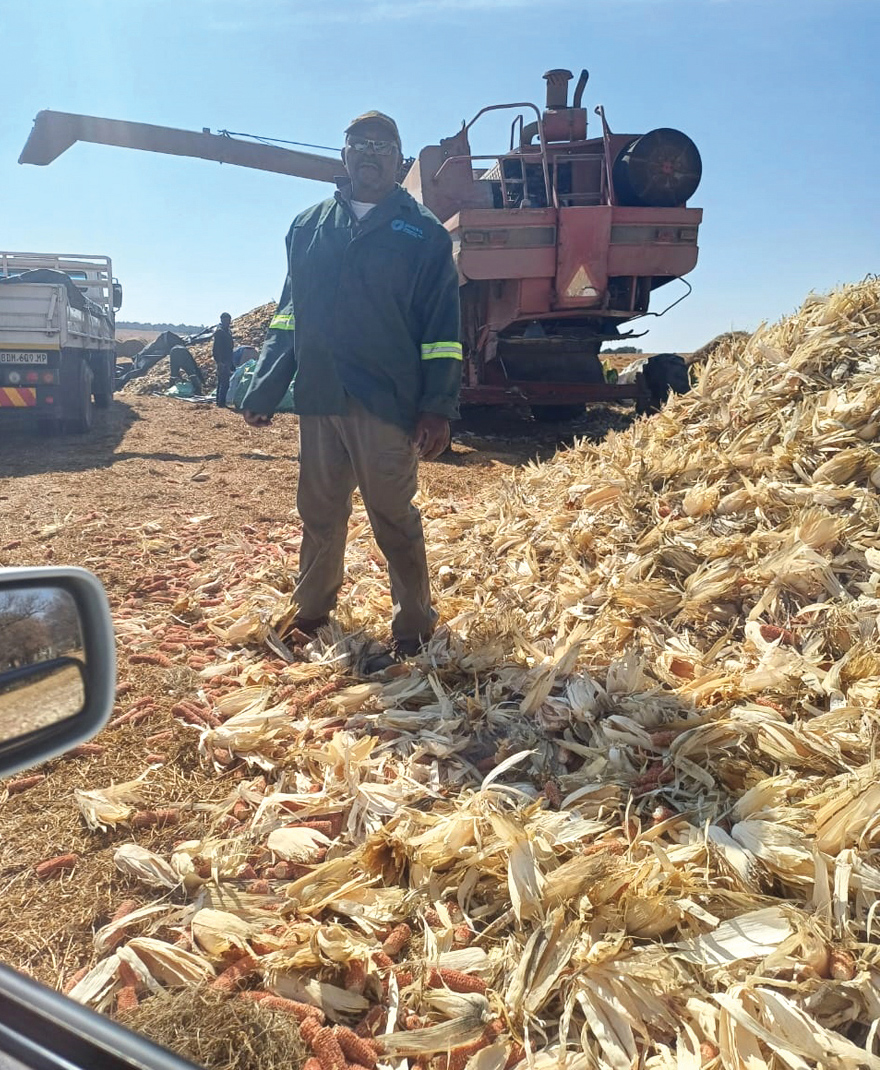
Gua Abram Makhunga, who is mentored by Martin Botha from the Louwsburg office, helped his neighbour to harvest maize.
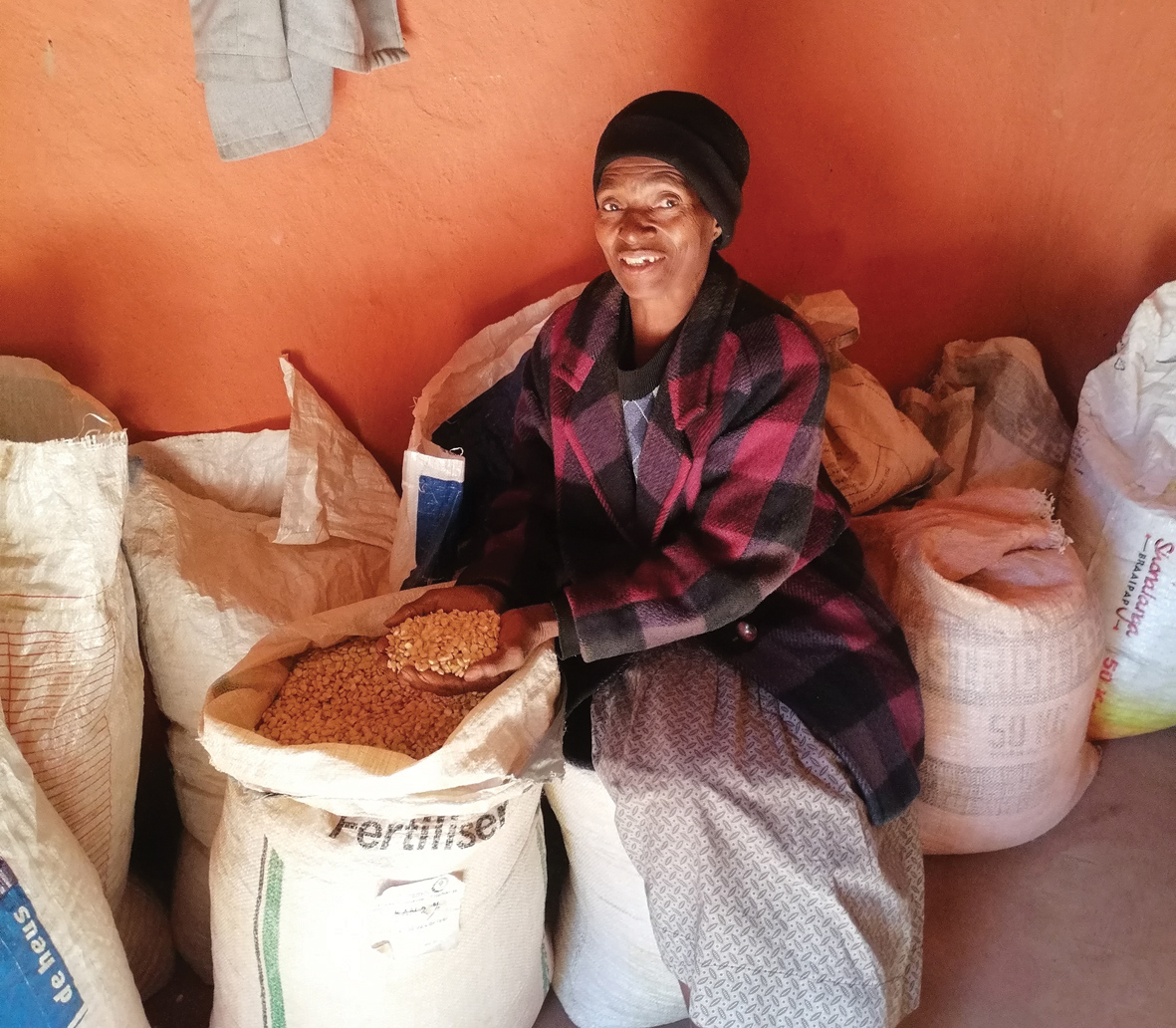
Phumzile Ngcobo, assistant regional manager at the Dundee office, visited Zanokuhle Nonkululeko Mabuza. Her maize had been harvested, dried, threshed and stored in maize bags, ready for delivery to a local mill.
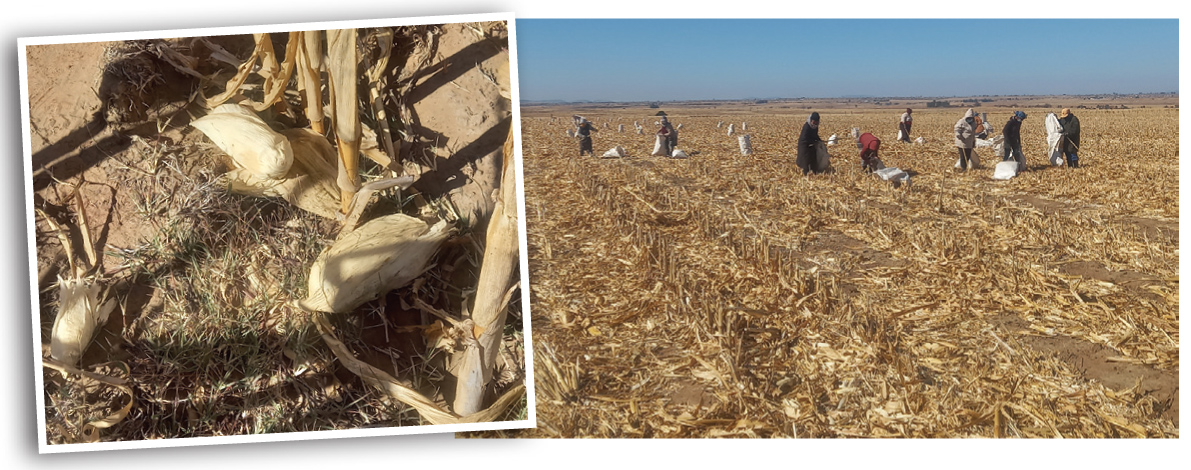
The recent winds in the Dundee region caused significant damage to farmer JJ Ngwenya’s maize crop. This added to his costs, as the cobs had to be picked up by hand.
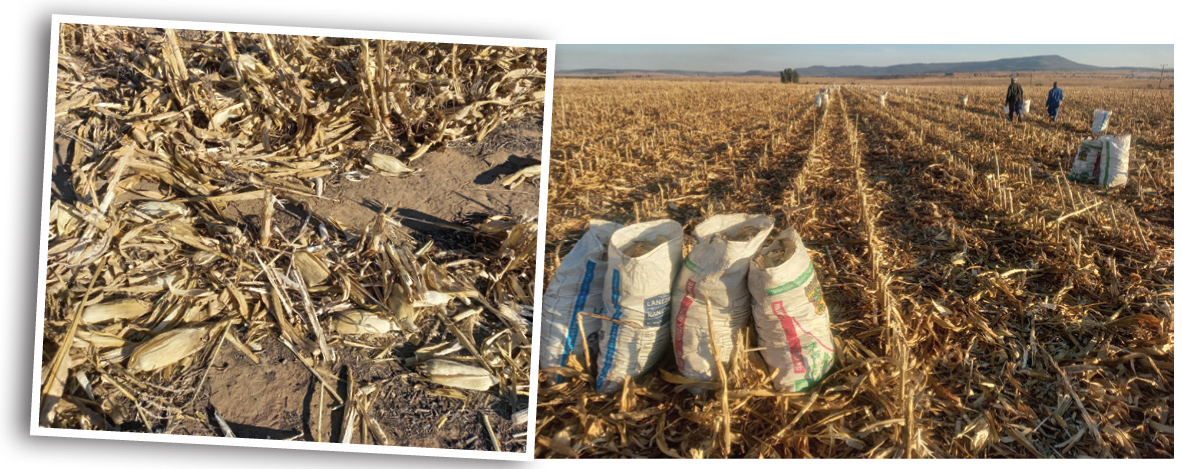
The wind also caused havoc for farmer Masuku, who is mentored by Chris de Jager from the Dundee office. As the wind blew many cobs from the stalks, this farmer also had to collect the cobs by hand.
A successful farmers’ day was held at Ngodini (Ntababomvu) near Dundonald on 25 July. More than 70 farmers attended this day, which was hosted by Mfaniseni Khumalo, a finalist in the 2024 Subsistence Farmer of the Year (FoY) category. He addressed the farmers and shared with them the production practices he had followed, which helped him realise 7 t/ha of yellow maize.
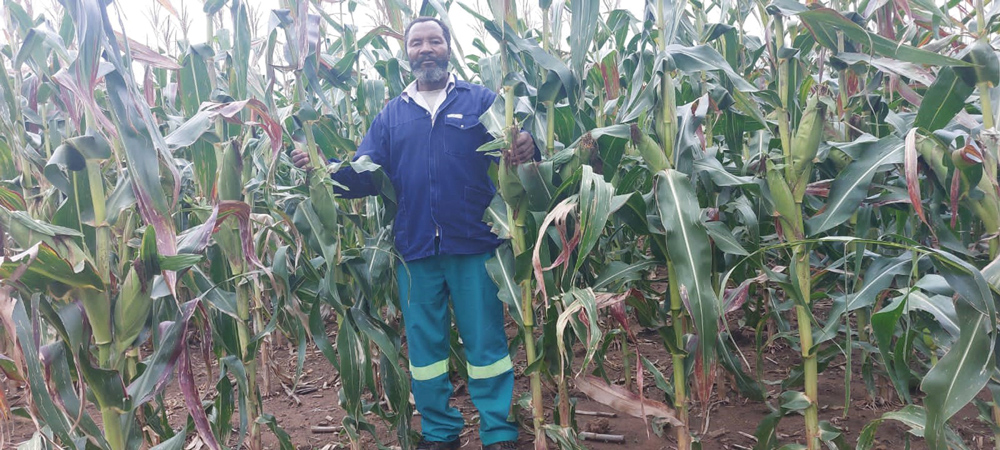
Mfaniseni Khumalo in his maize field.
Jerry Mthombothi and Phumzile Ngcobo from the PGP team discussed the planting of maize. This included planting dates, soil preparation, plant population, fertilisation, chemical weed control using both pre- and post-emergence herbicides. Another topic discussed was the Beyond Abundance Project.
Apart from Grain SA’s personnel, representatives from Bayer, the Department of Agriculture in Mpumalanga, Afgri Lothair Silo and FABI (University of Pretoria) were also present. A representative from the Department of Agriculture Disaster Management in Mpumalanga spoke to the farmers about the dangers of veld fires and the importance of fire breaks.
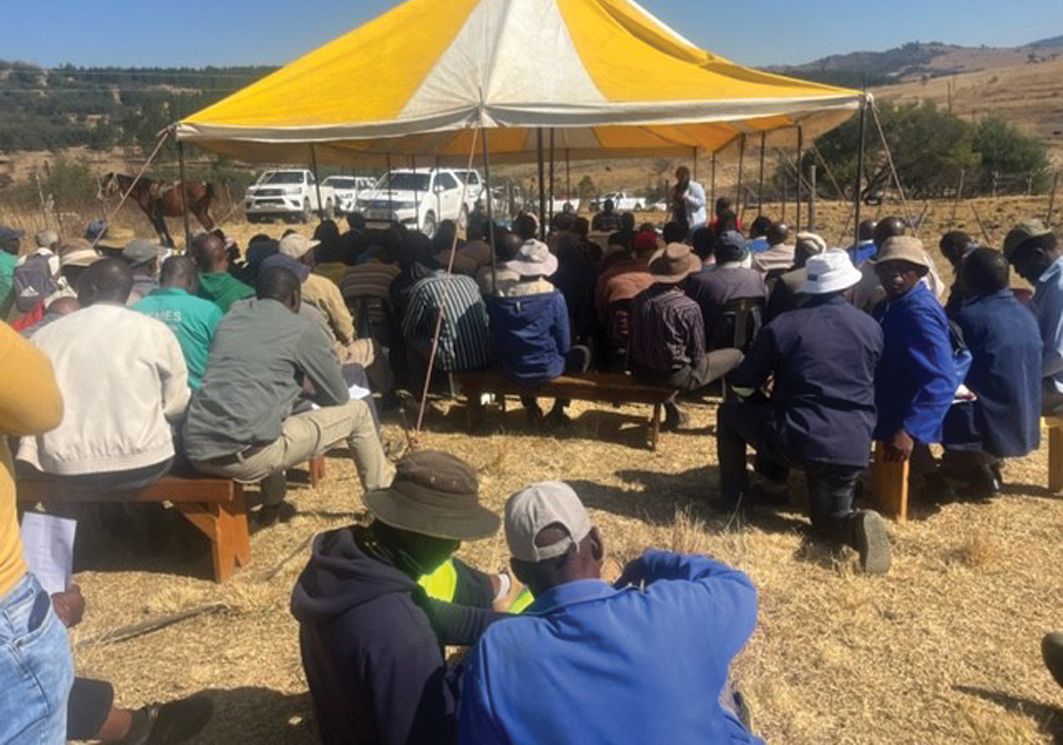
The good attendance at the Ngodini farmer's day shows that farmers are eager to learn.
Publication: October 2024
Section: Pula/Imvula